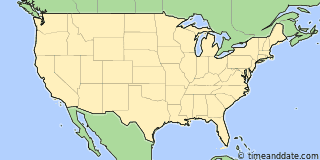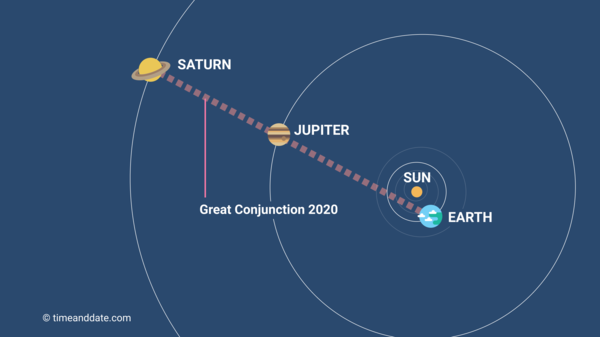| Night Time: | 14 hours, 45 minutes |
|---|---|
| Sunset: | Dec 20 at 5:03 pm |
| End of Twilight*: | Dec 20 at 6:08 pm |
| Start of Twilight*: | Dec 21 at 6:43 am |
| Sunrise: | Dec 21 at 7:48 am |

Winter Solstice: Shortest Day, but Not the Latest Sunrise
December 21, 2024, is the winter solstice and the shortest day in the Northern Hemisphere. But the Sun continues to rise later each morning—what’s going on?
Our Interactive Night Sky Map simulates the sky above Western Pacific Addition. The Moon and planets have been enlarged slightly for clarity. On mobile devices, tap to steer the map by pointing your device at the sky. Need some help?
Currently showing previous night. For planet visibility in the coming night, please check again after 12 noon.
Tonight's Sky in Western Pacific Addition, Dec 20 – Dec 21, 2024
Mercury rise and set in Western Pacific Addition
View just before sunrise.
Mercury is close to the Sun and can only be seen shortly before sunrise. Try finding a good, unobstructed view of the horizon.
Sat, Dec 21 ↑6:01 am
Time:
Altitude: °
Direction: °
Venus rise and set in Western Pacific Addition
View after sunset.
Venus can best be seen in the hours just after sunset. Visibility improves as the sunlight fades. Venus is visible by day, but may be hard to find.
Fri, Dec 20 ↓8:40 pm
Time:
Altitude: °
Direction: °
Mars rise and set in Western Pacific Addition
Most of the night until sunrise.
Mars is visible during most of the night, but it is best viewed in the early morning hours and until sunrise.
Fri, Dec 20 ↑7:32 pm
Time:
Altitude: °
Direction: °
Jupiter rise and set in Western Pacific Addition
Up most of the night.
Jupiter is roughly in the opposite direction of the Sun, so it is visible during most of the night.
Sat, Dec 21 ↓6:42 am
Time:
Altitude: °
Direction: °
Saturn rise and set in Western Pacific Addition
View after sunset.
Saturn can best be seen in the hours just after sunset. Visibility improves as the sunlight fades.
Fri, Dec 20 ↓11:04 pm
Time:
Altitude: °
Direction: °
Uranus rise and set in Western Pacific Addition
After sunset and most of the night. Bring binoculars.
Uranus is visible during most of the night, but it is best viewed in the late evening hours after sunset. You may need binoculars.
Sat, Dec 21 ↓5:02 am
Time:
Altitude: °
Direction: °
Neptune rise and set in Western Pacific Addition
View after sunset. Use binoculars.
Neptune can best be seen in the hours just after sunset. Visibility improves as the sunlight fades. Very faint, use binoculars.
Sat, Dec 21 ↓12:13 am
Time:
Altitude: °
Direction: °
Planets Visible in Western Pacific Addition
| Planetrise/Planetset, Sat, Dec 21, 2024 | ||||
|---|---|---|---|---|
| Planet | Rise | Set | Meridian | Comment |
| Mercury | Sat 6:01 am | Sat 3:47 pm | Sat 10:54 am | Average visibility |
| Venus | Fri 10:44 am | Fri 8:40 pm | Fri 3:42 pm | Great visibility |
| Mars | Fri 7:32 pm | Sat 10:23 am | Sat 2:57 am | Perfect visibility |
| Jupiter | Fri 3:56 pm | Sat 6:42 am | Fri 11:19 pm | Perfect visibility |
| Saturn | Fri 11:57 am | Fri 11:04 pm | Fri 5:30 pm | Average visibility |
| Uranus | Fri 2:44 pm | Sat 5:02 am | Fri 9:53 pm | Average visibility |
| Neptune | Fri 12:24 pm | Sat 12:13 am | Fri 6:18 pm | Very difficult to see |












